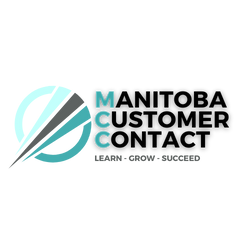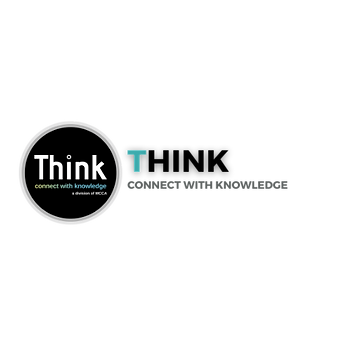.png)
.png)
.png)
Administrative Professional
Organizations are realizing the complete potential of Administrative Professionals, expanding opportunities to develop this crucial role with YOU leading the way.
Admin Professionals play a crucial role in the success of organizations by leading various projects, managing teams, and developing effective strategies. They take ownership and responsibility for business outcomes, working closely alongside executives and the various departments they support.
This multifaceted position requires a blend of skills, including exceptional organizational abilities, strong communication skills, and a deep understanding of the business's objectives and challenges. In their capacity as leaders, Admin Professionals are often tasked with coordinating cross-functional teams to ensure that projects are completed on time and within budget.
The role of Admin Professionals is dynamic and evolving, requiring them to be adaptable and proactive in a fast-paced business environment. Their contributions are vital for driving productivity, enhancing operational efficiency, and ensuring that the organization achieves its goals while maintaining a focus on quality and excellence.
It's a great career option that offers opportunities for advancement in various areas within a company.
Topics
REACH OUT - Contact us at any time to ask questions or find out more about developing the skills you need to succeed at work and in your everyday life. Contact bruce@mcca.mb.ca today.
Conducting Effective Meetings
Successful meetings have a clear purpose and are conducted with effectiveness and efficiency in mind. In this session we will discuss the difference between efficient and effective. You will walk away with tools and strategies to achieve both. Explore what is required prior, during and following the meeting to ensure everyone's voice can be heard. Meetings shouldn’t be where productivity goes to die. If you’re doing meetings right, they are where “real work” gets done.
Conflict Navigation
Learn how to navigate turbulent times and explore the symptoms and causes of team conflict using social awareness and emotional intelligence. Explore conflict management styles and learn how to use them strategically.
Creating a Healthy Environment at Work
We know that happy employees create happy customers. Providing the skills for work life balance and creating an environment that is safe, empowering, and satisfying will keep your staff happy, present, and engaged. We are thrilled to offer strategies for maintaining control through simple chair yoga exercises and mindful meditations.
Customer Service Professional
Customer Service Professional Training provides participants with a firm foundation in the standards and strategies for success within the customer service/customer enhancement industry. This 2 day course promotes self-reflection on existing behaviours and outlines best practices and strategies for communication, including tactics for both handling and understanding difficult customers.
Dealing with Difficult People
The truth is that people are unpredictable. When we come across people we find challenging to interact with we often find ourselves in a state of judgment. In this session, we focus on approaching these interactions with curiosity instead of judgment. Learn strategies for interacting with those we find tricky to work with and take away new insights for maintaining control in uncomfortable situations.
Delegation
In our fast-paced business and personal lives, most of us find ourselves faced with more work than time to do it. For organizational leaders, this trend is amplified as organizations struggle to do more with fewer resources. While there are a wide variety of strategies we could discuss to manage this trend, this session puts the focus on how to use effective delegation.
Developing Personal Accountability
Being personally accountable means owning situations you’ve been a part of. This means taking responsibility for the outcome, whether it is good or bad, and doing your best to rectify the situation. In this session, we will look at the behaviours that demonstrate personal accountability, earning you a reputation among coworkers and leadership as someone of integrity and who is trustworthy.
Effective Emails
Have you noticed that in this great epoch of technology and communication we are lacking effective communication and especially etiquette? Learn tips and tricks on how to get what you need from your email conversations. We provide the essential rules for more effective communication in your emails and texts. “Are your elbows on the table?”
Elevated Communication
Help build trust in our organization through elevated communication techniques. Create clarity for internal and external customers, discover the power of questioning techniques, analyze various barriers to effective communication and explore the crucial component of body language.
Emotional Intelligence
Emotional Intelligence is the ability to manage ourselves and our relationships effectively by identifying, assessing, and managing the emotions of oneself, others, and groups. In this workshop, we explore the key components of emotional intelligence: Self-Awareness, Self-Management, Social Awareness, Internal Motivation and Social Skills.
Facilitation Skills
One of the most important set of skills for team leaders, managers, trainers, indeed anyone who has a need to present information or host a meeting, are facilitation skills. These are the "process" skills we use to guide and direct key parts of our work with groups of people. Take your next meeting to a more engaging level with this session.
Influence the Skill of Persuasion
Influence is the ability to personally affect the actions, decisions, opinions, or thinking of others. Ultimately, influence allows you to get things done and achieve desired outcomes. In this session, we will explore influencing tactics and strategies to help you gain genuine commitment from others for you to accomplish key goals and tasks.
Interpersonal Skills
In many organizations, employees with strong interpersonal skills are valued for their pleasant demeanor and positive, solution-oriented attitude. These employees are seen as team players, who work well with others to achieve a goal. Interpersonal skills are strongly linked to a knowledge of social expectations and customs, people with the strongest interpersonal skills adjust their tactics and communications on the fly depending on the reactions of others. In this session, we will look at 10 of the skills most desired by employers.
Making Better Decisions
Every day we are making all sorts of decisions; some with long lasting consequences. This session looks at how to increase our ability to make more effective decisions… well. Often, we are making decisions based off symptoms of the problem and fail to find the root of the issue. Here we will look beyond the obvious, learn to seek alternatives, and evaluate the plan.
Managing Your Time
Good time management helps you to work smarter not harder. This session will aid you in understanding where your time leaks are and how to put a stop on wasted time.
Negotiation
Negotiation is not something to be avoided or feared – it’s an everyday part of life. Any time people are communicating and there are different goals in mind negotiation is happening. Understand negotiation behaviours and learn strategies to create value in your interactions.
Problem Solving and Decision Making
This session explores a variety of decision making and problem-solving techniques that will encourage you to move outside your habitual thinking style, and help you gain a more rounded view of the situation, enabling you make informed choices after considering multiple factors.
Setting Priorities
Priorities will guide you in life's decisions and keep you on track. Most importantly, priorities will give you the confidence to say "no." Incorporate new practices to extend your planning horizon and maintain your momentum.
Social Intelligence
You may have heard it said that your IQ will get you the interview and your Social IQ will get you the job. Developing Social IQ is one of the greatest qualities of any trustworthy leader. Boosting your Social IQ will allow you to be more effective in handling challenging situations, growing trust in your teams and lead with quiet dignity. This session looks at how you can boost your Social IQ and have better communication in your workplace, volunteer capacities, communities, and homes.
Telephone Etiquette
Increasingly business communications are done through chat, email, and text. Your customers love to have options when it comes to contacting you and many still choose the telephone. Having great telephone etiquette sets you apart and lets your customers know they are heard. In this session, we examine the techniques for great telephone communication including the importance of words, tone, and even body language.
Writing for the Workplace
Business writing is a type of writing that seeks to elicit a positive business response. It's a purposeful piece of writing that provides relevant information to help a reader know something or do something. In this session, you will learn the basics of several types of business documents and steps to ensure your writing fits standard criteria and is substantive, clear, correct, and easy to scan.